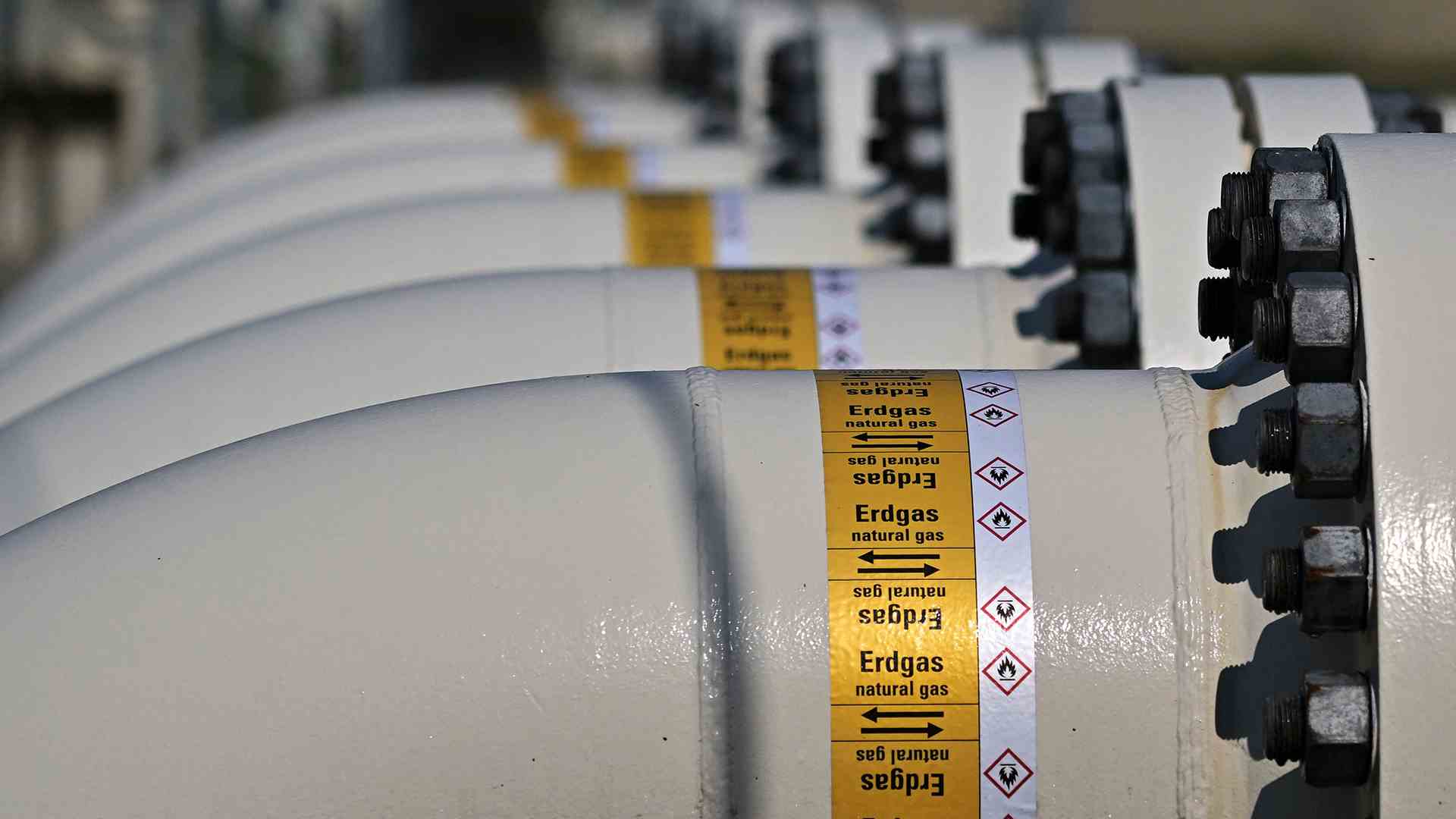Status: 06/20/2022 09:26 a.m
The industry supports Minister of Economics Habeck’s plans to reduce gas consumption in view of the throttling of Russian gas supplies. The CDU politician Jens Spahn criticizes them as too late and insufficient.
Federal Minister of Economics Robert Habecks is supporting gas-saving plans from German industry. Industry President Siegfried Russwurm told the news agency dpa: “We have to reduce gas consumption as much as possible, every kilowatt hour counts.” The priority must be “to fill the gas storage tanks for the coming winter”. Germany must open up as many other sources as possible.
According to Russwurm, companies would have to switch to oil, for example, where that could be done. “But a number of industrial processes only work with gas. A lack of gas threatens to bring production to a standstill,” said the President of the Federation of German Industries.
“Too late”
Union parliamentary group leader Jens Spahn, on the other hand, was critical: “It’s right that Robert Habeck is taking this step, jumping over his shadow. Only – he’s taking it too late,” said the CDU politician today in the ARD morning magazine. The federal government is obviously not well prepared. “If we had already started running more coal-fired power plants and fewer gas-fired power plants in March, the storage facilities would now be ten percent fuller.”
From Spahn’s point of view, the Minister of Economics only goes half the way because he no longer allows nuclear power plants to run. He does not understand that the green climate minister prefers coal-fired power plants to run longer and more powerfully than CO2-neutral nuclear power plants, said Spahn. With a view to resistance from the operators of the nuclear power plants in view of the high hurdles, the CDU politician said that energy suppliers shy away from the additional effort.
“But we are in a real emergency,” said Spahn. Before citizens are asked to freeze, politicians should examine all other alternatives. “This also includes the longer running of nuclear power plants,” says Spahn. It’s not about questioning the exit.
Chemistry is the largest gas consumer in Germany
Industry President Russwurm meanwhile confirmed that gas-fired power generation had to be stopped and coal-fired power plants had to be taken out of reserve. “Currently it is about short-term bridging measures to secure the energy supply, not about a date for the coal phase-out in 2038 or 2030.” Renewable energies would have to be massively accelerated. “Germany must finally say goodbye to paralyzing small-small debates and blocking attitudes and get off the brakes on the expansion of renewables. Politicians and administration must switch on the turbo as soon as possible for the designation of new areas for wind and solar power plants and for faster approvals.”
“Germany must now quickly and pragmatically use all opportunities to save gas where it can be replaced,” explained Wolfgang Große Entrup, Managing Director of the Chemical Industry Association. The association supports the measures presented by Habeck. Especially when switching from gas to coal, all capacities must be able to be used immediately without any differences.
Große Entrup welcomed the gas auction model announced by Habeck to save on industrial gas as a market-based instrument. With a share of 15 percent, the chemical industry is the largest consumer of natural gas in Germany.
“Don’t lose sight of climate goals”
Ingbert Liebing, general manager of the municipal utility association VKU, explained that it was absolutely right to react quickly to the dynamic situation and, if necessary, to take emergency measures. “Above all, a return of coal-fired power plants to the electricity market is expedient. This can already make a decisive contribution to reducing gas consumption.” However, the VKU warns against a “blanket ban” on gas-fired power generation or fines. Liebing also called for state aid not only for energy exchange trading, but also for public utilities.
President Karl Haeusgen said on behalf of the VDMA mechanical engineering association that Habeck’s plans to organize lower gas consumption were correct. The VDMA particularly supports the plan to create incentives for reduced gas consumption in industry. On the other hand, the possible intervention in power generation is effective but very sensitive. “More coal-fired electricity from reserve power plants can help in the short term, but we must not lose sight of the climate transformation goals.”
Criticism from the middle class
Small and medium-sized companies, on the other hand, see the plans critically. “In view of the reduced Russian gas deliveries, there is increasing concern among SMEs that they will lose out in terms of energy supply between the warm living rooms of private consumers and the raw material requirements of large-scale industry,” said Markus Jerger, Managing Director of the Federal Association of Medium-Sized Businesses (BVMW). Editorial network Germany. Habeck’s plan to distribute gas via auctions could mean that small and medium-sized companies can no longer keep up with the bidding.
Meanwhile, the CEO of the Essen-based energy group RWE, Markus Krebber, expects high gas and electricity prices for years to come after Russia’s attack on Ukraine. “It will probably take three to five years,” said the manager of the “Süddeutsche Zeitung” about the energy bottlenecks in Germany. “Because it takes time before new capacities are created and other countries can supply additional energy.”
RWE against continued operation of nuclear power plants
According to the RWE boss, the throttling of gas supplies from Russia is already having an effect on his company. “We also get significantly less than the agreed amounts.” The group, which operates gas and coal-fired power plants in Germany, Great Britain and the Netherlands, must now “buy the fuel at significantly higher and further increasing prices”.
Krebber ruled out continued operation of the last nuclear power plants in Germany beyond the end of 2022. However, as planned, RWE is banking on the expansion of the Garzweiler II opencast lignite mine in the Rhineland. “Planned open pit mine progress is important – especially as we prepare for gas-saving scenarios.”

